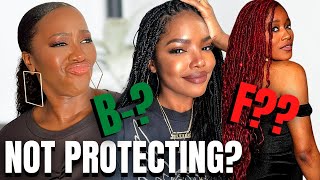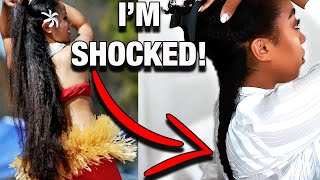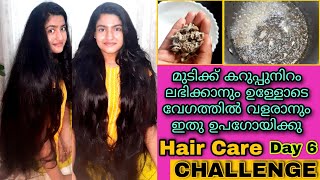DEBUNKED: 5 Common Myths and Misconceptions About How You Should Wash Your Hair
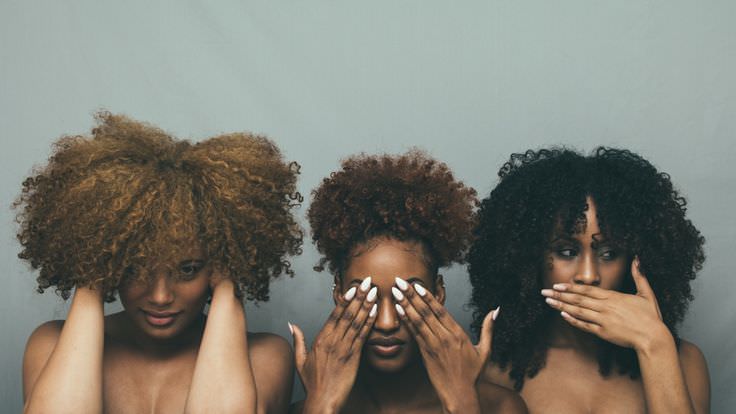
Both relaxed and natural women alike know that washing their hair can be the most important, yet the most tedious part of hair care.
A lot of information and tips regarding shampooing and conditioning has been shared among women, but a good amount of that advice has been quite misleading.
Although we don’t know everything there is to know about wash days and hair care in general, one thing is for certain: All advice isn’t good advice.
From “You wash your hair too much” to “you should deep condition your hair overnight”, we’ll explore the top 5 most commonly said and shared myths and misconceptions about shampooing and conditioning our waves, curls, and coils.
“The longer you deep condition your hair, the better!”
When I first started deep conditioning* my hair, I was told that the longer I deep conditioned, the better. I, like a lot of women, eventually started leaving the conditioner in my hair overnight and washing it out in the morning. At first, I noticed that this method made my hair extremely soft-too soft, if we’re being honest.
Following a few months of deep conditioning overnight, my hair started to shed like crazy; it was far more fragile than it was before because it was a lot softer.
After doing some research, I found out that deep conditioning* for more than an hour not only had minimal benefits, but changed the keratin in my hair-causing it to lose strength. Over-conditioning is the epitome of “too much of a good thing”.
So what is the final verdict? You should always do what is right for your hair, but for the most part, 30 minutes to 1 hour is long enough to reap the benefits of deep conditioning but not too long where it may cause your hair to become limp and prone to breakage.
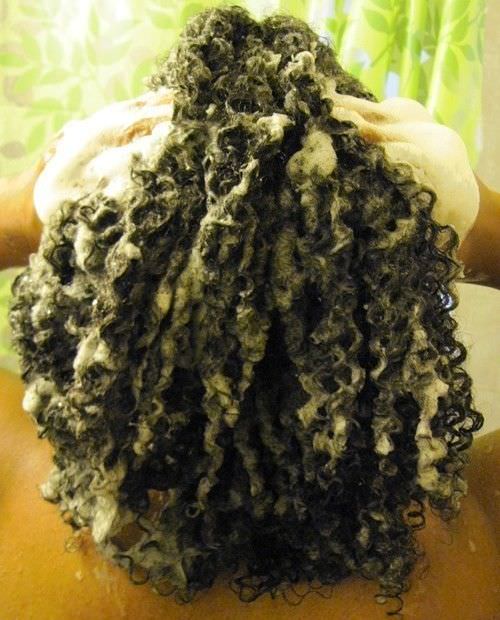 “Washing your hair too much will stunt its growth”
“Washing your hair too much will stunt its growth”
“Dirty hair grows better” is a widely believed notion when it comes to Black women and hair growth. This idea is not too far fetched because many women do experience a significant amount of hair growth after a few weeks of infrequent hair washing. However, hair growth doesn’t come about because of a dirty scalp; It is actually the result of low manipulation hair care.
Unfortunately, what you think is helping, could actually be doing the opposite-yikes! If you’ve been trying your hardest to skip washes as a method of low manipulation hair care and have not seen any results, you may have clogged scalp pores. Buildup from oil, dirt, and hair products can clog your pores and interrupt your hair growth.
On the other hand, washing your hair too often can strip it of it’s natural oils* and cause it to become dry and brittle. This can be prevented by cutting back on washes, using a sulfate-free shampoo, and doing a pre-poo. Simply put: wash your hair when it needs to be washed and take the proper steps to avoid dryness and breakage.
“Any conditioner with silicone is bad for your hair”
More often than not, the term “sulfate-free” is often accompanied by “silicone-free” which makes people believe that all silicone is bad for your hair-which is not always the case.
Silicone is typically put in hair products because its compounds are usually resistant to chemical attack and insensitive to temperature changes. Sounds great right?
Well, there’s a downside. Some silicones make your hair feel heavy and are hard to wash out, causing buildup. Don’t let a few bad properties steer you away from silicones altogether. Instead, look for silicones that will protect your hair from heat and styling tool damage (i.e. flat irons* and fine tooth combs).
Cyclomethicone and Dimethicone Copolyol are the better quality silicones that allow your conditioner to give you silky, soft hair with a natural shine, and leave you with little to no buildup.
On the other hand, Amodimethicones and Dimethicones are very challenging to wash out and leave your hair with a very heavy coating so you should avoid these at all cost.
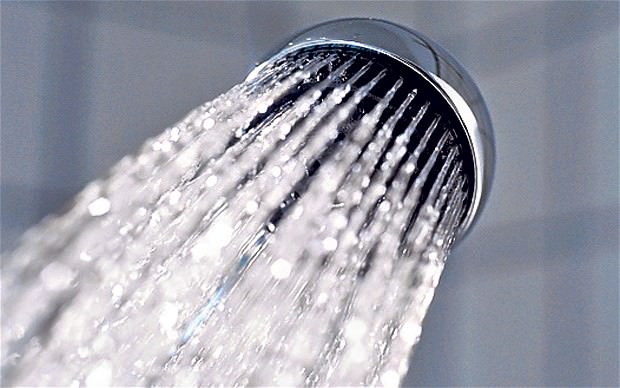 “It’s better to wash your hair in cold water opposed to hot”
“It’s better to wash your hair in cold water opposed to hot”
I speak for a lot of women when I say it’s almost second nature to get in the shower and start washing your hair. For a long time, I would lather, rinse, and repeat without putting too much thought into how I was washing my hair or what I was washing it with-including water temperatures.
After years of washing my hair with steaming hot water, I ran into an article saying that washing your hair in cold water was better. The article stated that hot water could cause your hair to become overly porous and frizzy. I wasn’t completely sold on the idea so for a couple of weeks, I washed my hair in nothing but cold water and recorded the changes in my hair.
While my hair was softer and shinier, I found that the pores of my scalp were clogged because cold water wasn’t as effective as hot water when it came to removing oil, dirt, and sweat from my pores and scalp. However, both methods had their benefits but washing with cold water really wasn’t any better than hot.
So what is the conclusion? It is better to wash your hair in warm water and then rinse with cold water. This method will allow you to properly cleanse your scalp and hair while retaining moisture and a healthy shine.
“Dry Shampoo is only for white women”
Now, let’s get something straight guys: There is no such thing as “white people products”. If something works for your hair, no matter who it is being marketed to, use it. I know Black women all over the world are looking for hair products made specifically for us, but we shouldn’t limit ourselves and miss out on potentially amazing products-especially if they’re anything like dry shampoo.
If you’re not familiar with dry shampoo, it is a spray or powder that is designed to absorb the oil in your hair, soothe an itchy scalp, and make it look and feel “clean” on those days you couldn’t get in a good wash.
Now we all know that both relaxed and natural women stay oiled down to the socks because sealing in moisture is one of the keys to healthy hair. But there is no need to panic; dry shampoo does everything BUT dry out your hair.
The silica* and/or starch based formula can help on those days where you went overboard with the coconut oil*, need to take that plastic looking shine out of your hair weave, when you need to return the life to an old blowout, or soothe that dry,flaky scalp.
Dry shampoo shouldn’t necessarily be a staple in your hair care regimen, but it can absolutely come in handy one of these days.
The real goal is not to duck and dodge every piece of advice you get regarding your hair, but it is to know what works for you and your hair, and be aware that hair advice is not “one size fits all”.


